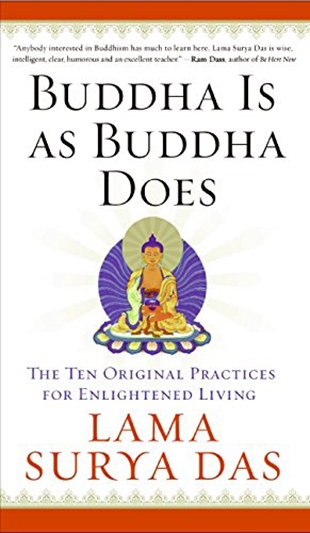"Inner generosity also means cultivating nonattachment, acceptance, and contentment, so that we are more open to whatever the needs of others might be. Meditation and conscientious self-inquiry can greatly help us in this effort. Critics of meditation often say, 'Isn't meditation selfish? Doesn't it mean cutting yourself off from the test of the world? Isn't it unproductive?' Nothing could be further from the truth. By meditating, we're learning to disengage ourselves from habitual clinging and disperse the defilements and obscurations that hinder our capacity to serve others, such as illusory feelings of scarcity and fears of deprivation. We gradually learn to be more conscious and make better choices. We develop simplicity instead of complexity, open-mindedness instead of narrow-mindedness, flexibility rather than rigidity. We free ourselves to be more available to others and to give more generously of ourselves.
"Finally, there is generosity as it relates to our secret or innermost spiritual level of being, the incandescent immensity of innate Bodhicitta, which Buddhists call our 'suchness,' our Buddha nature. This is our connection with the infinitely abundant truth and inexhaustible source, the Dharma or universal law. When we realize its limitless possibilities, we know how little we need from the outside world or anyone in it and feel content, supported, fulfilled. With this delightful knowledge, we give freely of ourselves at all times, without preconceptions or specific goals in mind. When we surrender to what is and learn to let go and let be, we exist as agents of pure generosity, like a clear channel for the flow of the cosmic energy of enlightenment.
"Our secret level of being is the inherent domain of complete nonattachment, where we live with wide-open mind, heart, and hands. The more we cultivate generosity in our outer and inner lives, as clumsy as our efforts may sometimes be, the more we resonate with the secret and subtle level of our being, releasing its amazing, inexhaustible energy into our lives and into the world. When we realize the truth of the Buddhist adage that deep spiritual contentment is the ultimate form of wealth, we liberate ourselves to practice generosity to its fullest extent. We re-enter the marketplace with bliss-bestowing hands and a large bag of gifts on our backs, ready to dispense them.
WHAT IS YOUR EXPERIENCE WITH GENEROSITY?
"Right now, take a few moments to review your past in terms of the generosity you've received and bestowed. Ask yourself the following questions and note the first images that come to mind. Strive to make this a routine practice each time you feel blessed by someone's generosity or challenged to be more generous yourself.
• When have I especially appreciated another person's act of generosity toward me? How did it feel? Why did I appreciate it so much? How did I respond? Try to feel some gratitude for these kind benefactors.
• When have I been especially generous to others? How did I feel? Why? What charitable cause or causes could I support better now?
• What individuals and groups of people do I find it hard to think compassionately and open-mindedly about? Considering each individual and group separately, why do I experience this difficulty? How might I work toward overcoming it?
• Thinking of individuals in my life now, what gift would I like from them? Why?
• Thinking of individuals in my life now, what gift would they most appreciate from me? Why? What would I most like to share with them?
• Am I usually on the giving at the receiving side of relationships? Have I realized that true generosity includes both giving and receiving, just like breathing in and breathing out?"
